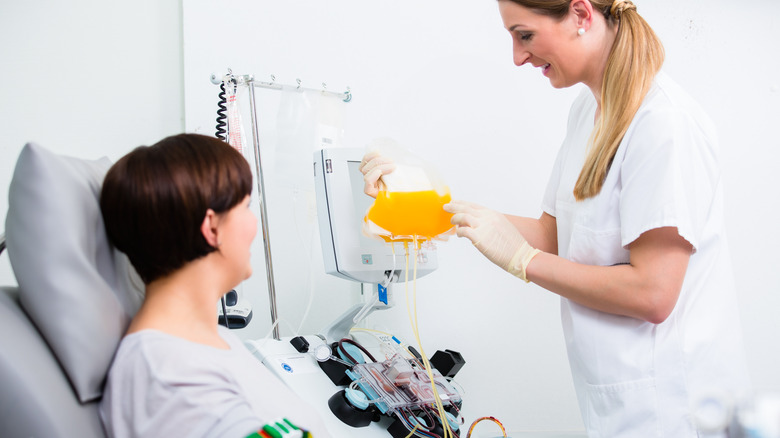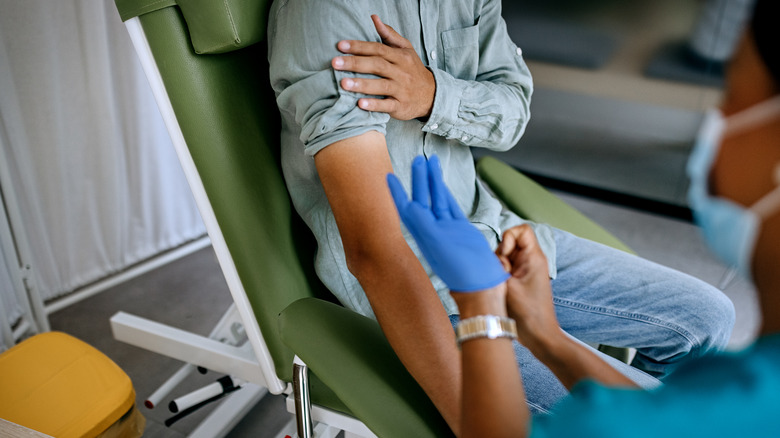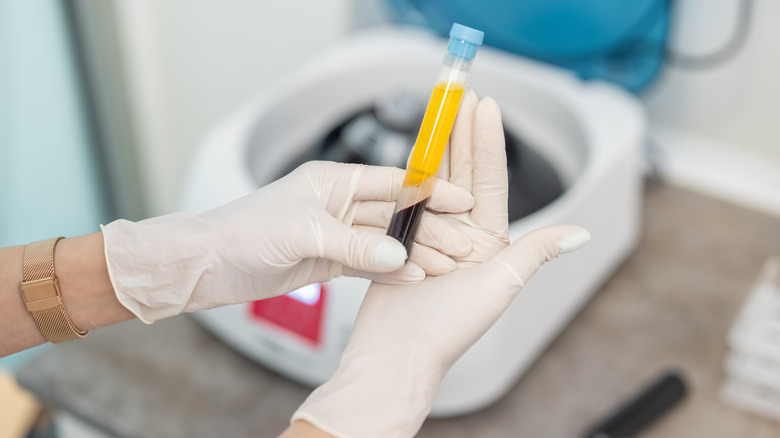How Often Can You Safely Donate Plasma?
Think of your blood as a public transportation system for the body. As it circulates, it carries oxygen, nutrients, cells, infection-fighting antibodies, and waste all where it needs to go. To accomplish this, the body generates a lot of blood — so much so that it accounts for up to 8% of our total body weight, according to the American Society of Hematology. While our blood is made up of many components, it is predominantly composed of red and white blood cells, platelets, and plasma.
Just as you can donate blood, you can also donate plasma. More than 90% water, plasma also contains vital proteins, hormones, vitamins, and more (via American Red Cross). Plasma is a key player when it comes to blood clotting and immunity, as well as regulating blood pressure and volume, transportation of electrolytes, and keeping our body at a balanced pH level. As a result, plasma is often needed for life-saving treatment of trauma, shock, or burn patients.
Let's take a look at what's involved in the plasma donation process — and how long donors should wait between appointments.
What happens during a plasma donation appointment?
A plasma donation appointment runs about one hour and 15 minutes, according to the American Red Cross. During this time, blood is extracted from the donor's arm and filtered through a machine that will divide the plasma from the blood cells. The red blood cells and platelet components of the blood are then restored to the donor. The plasma is frozen within a 24-hour period and may be preserved for as long as one year. Because plasma from type AB blood can be administered to any patient regardless of their blood type, those with AB blood are encouraged to donate.
However, an individual can make no more than 13 plasma donations in a year. Specifically, appointments must be spaced at least 28 days apart. However, private plasma donation companies may be the exception to the rule. They often allow more routine donations, as frequently as on a weekly basis (via Healthline).
Are there risks to plasma donation?
Those wishing to donate plasma must meet certain requirements. This includes being 18 years of age, weighing at least 110 pounds, possessing a valid ID and permanent address, being in good health, and having had no recent tattoos or piercings within the last four months. Prior to your appointment, it's important to stay hydrated, eat a meal, and get a good night's rest. Do not consume alcohol within 24 hours of the appointment, and refrain from smoking two to three hours before your donation.
While generally considered safe, some individuals may experience temporary side effects following plasma donation. These could include dizziness, fatigue, bruising, or discomfort. Those who donate plasma on a more regular, ongoing basis may be at an increased risk for protein deficiency or reduced immunoglobulin levels (which are important for combating infection). Therefore, if you're a person who routinely donates plasma, consult with your doctor to ensure your immunoglobulin levels are checked on a regular basis.



